Are you looking for the best treatment for squamous cell carcinoma?
Squamous cell carcinoma (SCC) is a skin cancer and its treatment will depend on whether the cancer is high or low risk, tumor size, location, & depth), and how far cancer has spread.
Learning about this cancer is important because early detection makes it possible to cure it. But you should also know about the preventive measures to avoid its recurrence.
You will be glad that squamous cell carcinoma treatment in India gives you different treatment options and the best quality care under your budget.
We have prepared this guide to help you learn about this cancer and how treatment in India can make your healing journey smooth and successful.
Key Takeaways
- Squamous cell carcinoma is a common skin cancer that starts in squamous cells of the skin and other organs.
- It can be caused by excessive exposure to UV rays or by using tanning beds. Other risk factors are a weakened immune system and chemical exposure.
- Scally patches, red sores, and thickened skin are some of the symptoms of squamous cell carcinoma. Sometimes these spots may bleed and they need the immediate attention of your doctor.
- The treatment options for squamous cell carcinoma include surgery, chemotherapy, and radiation therapy.
What is Squamous Cell Carcinoma (SCC)?
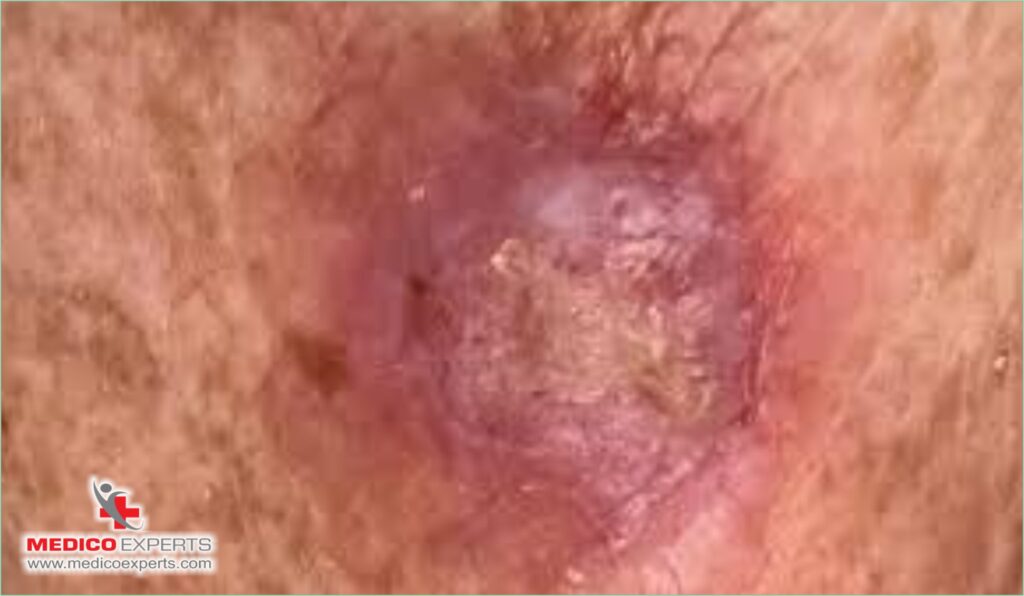
Squamous cell carcinoma is a type of cancer in which cells called squamous cells grow uncontrollably on the skin. These cells make up the middle and outer layers of your skin. It is not life-threatening. But if it stays untreated, squamous cell carcinoma can spread to other parts of the body and create serious health complications.
It is not a common type of skin cancer. Generally, this cancer forms on areas of the body that get maximum sun exposure like the back of the hands, ears, or lips. It also can happen in areas that have mucous membranes like mouth, lungs, and anus.
What are the Causes of Squamous Cell Carcinoma?
Many factors can cause squamous cell carcinoma. Let’s learn about them:-
UV Radiation
UV radiation from the sun or tanning beds is one of the causes of squamous cell carcinoma. Overexposure to UV radiation (ultraviolet rays) damages the DNA which can cause these cells to grow out of control and form cancer.
Environmental Exposure
Environmental exposure can cause SCC. Chemicals like arsenic, polycyclic aromatic hydrocarbon, alkylating agents, and ionising radiation are some such risk factors. Exposure to these substances can cause serious damage to the skin and that can result in SSC.
You may get exposed to these chemicals:-
- Using medicines that have arsenic in them.
- If you work in industries that use arsenic like glass production and wood preservation.
- Drinking or using water that is contaminated with this chemical for food irrigation and other purposes, especially if it is from natural geological sources (rainwater, groundwater, surface water, etc.).
- Smoking can expose you to arsenic.
Immunosuppressed State
The immunosuppressed state is related to SCC. This mostly happens to people who have weakened immune systems due to organ transplants, HIV AIDS, or other such conditions. It happens because when your immune system is weak, it has difficulty detecting and destroying cancerous cells.
Preexisting Lesions
The preexisting lesions can increase the chance of squamous cell carcinoma. Skin conditions like actinic keratosis (a rough, scaly patch caused by sun damage), chronic ulcers, burns, and scars, can lead to SCC over time. These wounds happen due to long-term damage to the skin and they are prone to turning malignant.
Medications
Some medications can increase the chances of SCC. A recent study indicated that some medications for high blood pressure have a connection with this cancer. It can increase the risk of developing skin cancer up to 7 times.
What are the Symptoms of Squamous Cell Carcinoma?
This skin cancer can have different symptoms depending on the area of the body in which it occurs. Check the symptoms of SCC in different areas:
Skin
The skin may have:-
- There can be a rough, scaly patch on the lip that may turn into a sore
- Bump or nodule with a rough, scaly surface
- Flat radish surfaces
- Scaly surface
Head and Neck
The common symptoms of head and neck squamous cell carcinoma are:-
- Lumps in the throat, mouth, or neck
- Difficulty swallowing
- Voice change
- Persistent soar throat
- Weight loss
- Earache
Genitals
SCC in the genitals may have these symptoms in men:-
- Pain
- Itching
- Discharge
- Foul odour
- Warts on the penis
Women may experience the following symptoms:-
- Growth or tumor in the vagina
- Frequent urination
- Weight loss
- Pelvic pain
- Lower back pain
- Vaginal bleeding
- Discharge
Lung SCC Symptoms
The symptoms may include:-
- Chest pain or discomfort
- Shortness of breath
- Chronic cough
- Coughing out blood
What are the Different Types of Squamous Cell Carcinoma?
There are different types of squamous cell carcinoma. Most have the same symptoms. Let’s check them in detail:-
Large Cell Keratinizing Squamous Cell Carcinoma
This type of SCC starts in the squamous epithelial cells, which are flat, scale-like cells found in tissues, including the skin and the lining of some other organs. It is called a “large cell” because when the cancer cells are checked using a microscope they look large.
The term keratinizing is used because the cancer cells produce keratin which is a protein found in hair, nails, and skin.
Intraepidermal Squamous Cell Carcinoma
This type of SCC develops in the parts of the body that get sun exposure. The ultraviolet rays exposed areas like lips, backs of hands, tops of the ears, and lower legs. Rarely, this cancer can develop in mucosal surfaces like the nose, mouth, eyelids, lungs, stomach, and windpipe.
Adenoid (Pseudoglandular) Squamous Cell Carcinoma
ASCC is a rare variant and it develops mainly in the head and neck area of the body. It forms in the minor salivary glands that are situated in the upper respiratory glands and digestive tract. These are saliva-secreting glands that help in digestion and maintaining oral health.
Verrucous Squamous Cell Carcinoma
It starts in the moist inner lining of the oral cavity. It can develop in other mucous membrane-lined areas like genital and anal areas. The tumor grows slowly and it has a warty surface that looks like a cauliflower.
Papillary Thyroid Carcinoma
It is a common type of SCC. The thyroid is a small, butterfly-shaped endocrine gland that secretes hormones. This cancer can happen at any age but it is common in people younger than 40 years of age. It affects women more than men.
Family history and genetic defects are some of the causes closely related to this SCC.
Lymphoepithelial Cancer
It is another rare type of SCC. It happens in the tightly packed epithelial cells of different tissues, including skin. It is more common in the upper part of the throat behind the nose and the salivary glands. It affects older people, mostly above 50 years of age.
Spindle Cell Carcinoma
It is a rare and aggressive type of squamous cell carcinoma. Spindle cell carcinoma is caused by exposure to harmful UV rays. It is one of the non-melanoma skin cancers (a type of cancer that occurs in the outer layer of the skin).
It usually forms in the oral cavity, like the mouth, inside the throat, lips, or tongue. Prior radiation, smoking, and too much alcohol consumption can lead to this cancer.
Papillary Squamous Cell Carcinoma
This SCC has a unique papillary growth and the tumor looks long and thin, and it looks like a finger under the microscope. This cancer can be easily treated with advanced therapies. But for that, it needs to be detected early.
Conjunctival Squamous Cell Carcinoma
This type of SCC occurs on the surface of the eye and this happens to older caucasian people. There will be white or yellowish-pink nodules on the eye surface. It is a rare cancer. In 1-21% of cases, this cancer can spread.
Micro-Invasive Squamous Cell Carcinoma
This is an early-stage cancer that only involves the superficial layer of the skin or other tissues. They do not go deeper. It happens in the oral cavity and cervix.
What are the Stages and Grades of Squamous Cell Carcinoma?
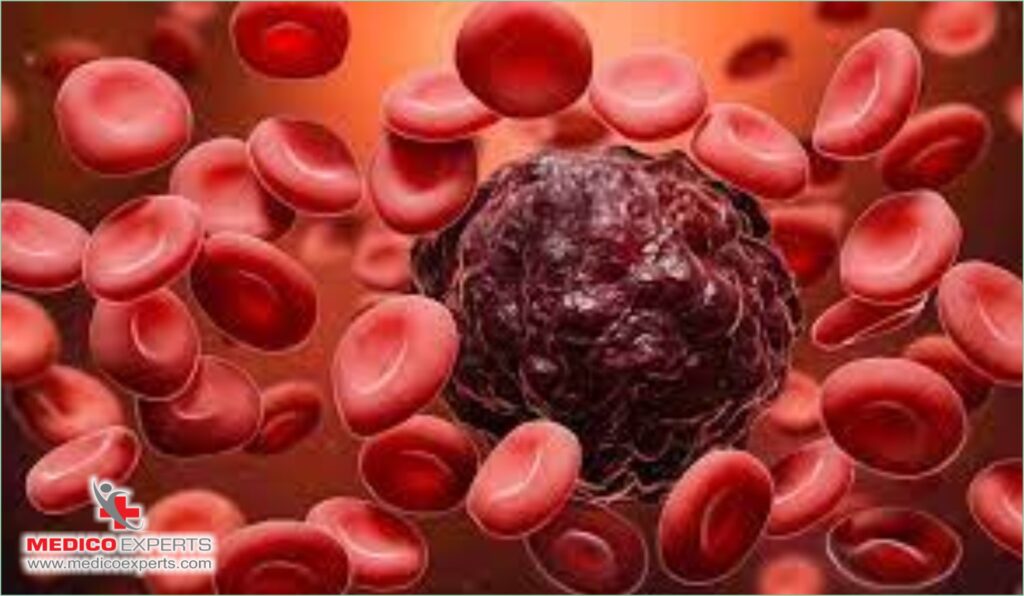
Squamous cell carcinoma is graded by comparing cancerous cells with normal cells. In short, doctors check how closely the tumor cells resemble the normal cells of the patient’s body. There are three grades of this cancer based on that comparison:
- Grade 1 (well-differentiated) tumor cells look mostly like normal cells.
- Grade 2 (moderately differentiated) tumor cell characteristics are between well-differentiated and poorly differentiated.
- Grade 3 (poorly differentiated) tumor cells are abnormal and completely different from normal cells.
Stages of SCC are based on how far the cancer has spread:-
- In stage 1, the cancer is in the top and middle layers of the skin
- In stage 2, the cancer has spreads to the nerves and deeper layer of your skin
- In stage 3, the cancer has spread to lymph nodes
- In stage 4, the cancer has spread to other organs.
How is Squamous Cell Carcinoma Diagnosed?
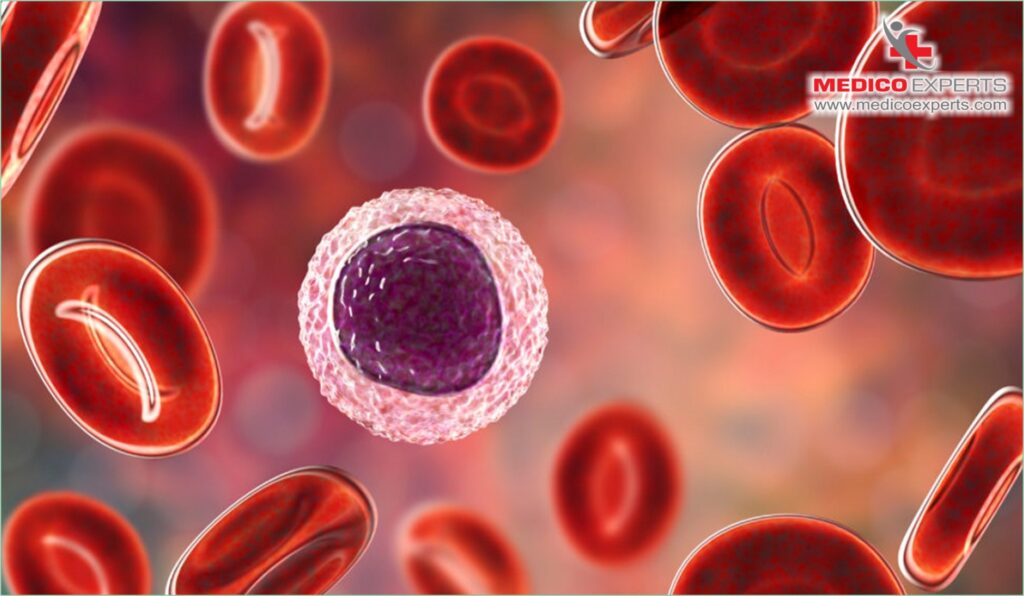
Doctors use these examinations and tests to diagnose whether you have SCC:-
- Doctors will first examine the skin to check if there are any moles, red patches, or birthmarks.
- They may recommend a blood test to check the complete blood count (CBC). This will help them find the count of red blood cells, white blood cells, and platelets. Abnormal numbers of any of these will indicate problems.
- Biopsy is another way to diagnose SCC. Doctors will collect a sample of the abnormal cells and check it under the microscope.
Squamous Cell Carcinoma Treatment in India
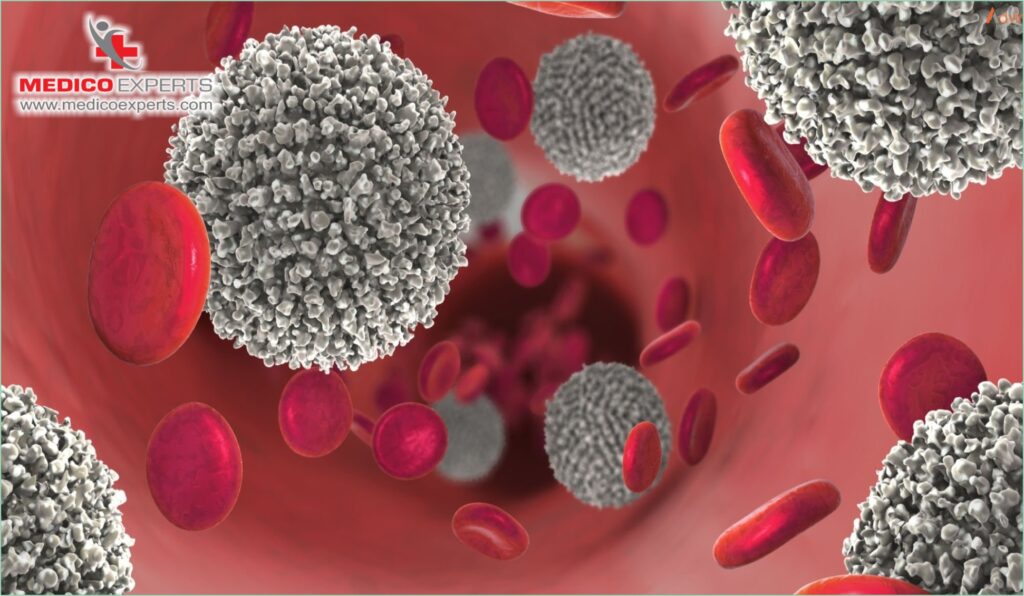
Squamous cell carcinoma treatment in India involves different approaches and your doctor will follow these approaches according to the stage of cancer, location, and the patient’s overall health.
You can avail top-notch medical care and treatment under your budget in the country. The procedures will be cost-effective compared to Western countries. But the best part is you don’t need to compromise on the quality of treatment for that.
Here are the treatment options you will get in India:
Surgery
The common treatment for SCC is surgery. The type of surgery they will use depends on the cancer’s size, location, and patient’s risk group. Three types of surgeries are used to treat this cancer: Mohs micrographic surgery, excisional surgery, and curettage and electrodessication.
- Curettage and electrodesiccation use scraping and burning to eradicate minor SCC.
- Using Mohs micrographic surgery, doctors remove thin layers of tissues at a time and examine them at the same time to make sure all cancerous cells are removed.
- Excisional surgery is used to remove the tumor and the surrounding tissues.
Radiation Therapy
Radiation therapy uses high-energy rays to kill cancer cells by destroying their DNA. This therapy is used for older people who cannot undergo surgery. However, it may also be used with a combination of surgery if the patient has a larger tumor.
Cryosurgery
Cryosurgery (cryotherapy) is another option of treatment for some SCCs. It is used to treat early-stage SCC or those who have lower chances of recurrence. Cryotherapy is also used for patients who cannot undergo surgery.
Photodynamic Therapy
In this therapy, a liquid medicine is applied to the skin. This medicine makes the cancer cells sensitive to light. Next, a light that destroys cancerous skin is used to kill them. It is used for both cancerous and precancerous cells.
Chemotherapy
Chemotherapy may be used either alone or in combination with radiation therapy. It is used when the cancer has spread too far to be cured using radiation or surgery alone. Before using chemo, an immunotherapy drug is given to the patient.
How to Prevent SCC?
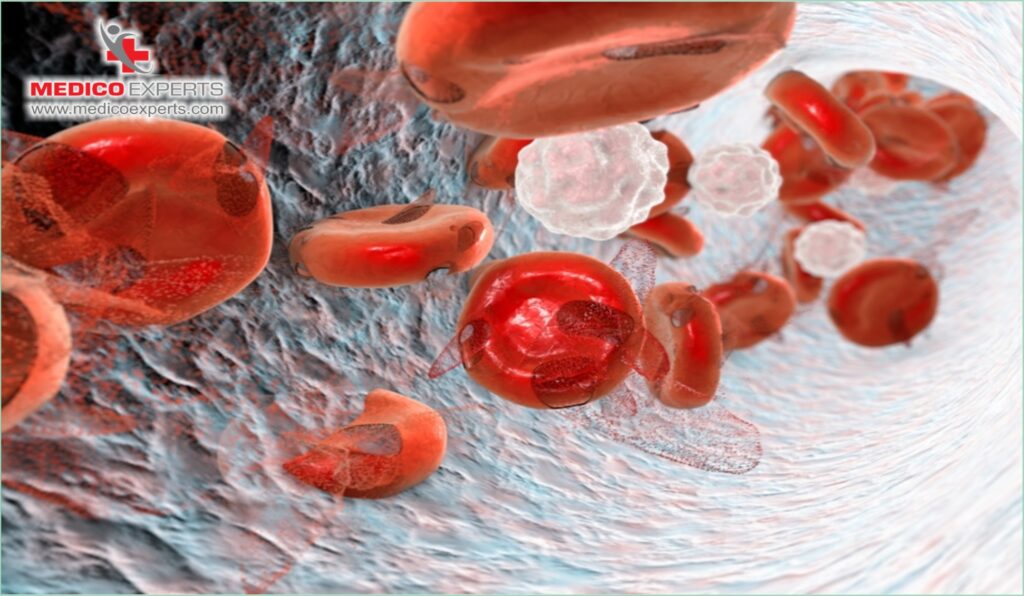
Though there is no sure shot way to prevent squamous cell carcinoma, you can easily control some risk factors:-
- Protect your skin from harmful UV rays. You can do that by wearing sunglasses, full-sleeve dresses, and shirts, or using an umbrella when outside in the sun.
- Smoking and tobacco use can cause SCC. So, stay away from them.
- Stay away from tanning beds and sun lamps (a lamp that emits ultraviolet rays). Tanning beds emit UV rays that may cause SCC.
- Avoiding harmful chemicals is another way of minimizing the chances of squamous cell cancer. Chemicals like arsenic can cause SCC.
- Check your skin regularly and when you see any signs, reach out to a doctor.
- Keep your immune system strong. Eat healthy and do regular exercise to keep it strong and healthy.
Cost of Treatment for Squamous Cell Carcinoma

The average cost of squamous cell cancer treatment in India is around 10,00,000 INR (12000 USD) and 20,00,000 INR (23,800 USD).
The surgical procedure for this cancer may cost around 2,00,000 INR (2400 USD) to 10,00,000 INR (11000 USD).
Radiation therapy costs can be between 1,00,000 INR (1200 USD) and 2,50,000 INR (3000 USD) depending on the type of therapy used. Cryosurgery or cryotherapy costs between 4000 INR (48 USD) and 10,500 INR (125 USD) in India.
Many factors impact the cost including the type and stage of cancer, location of the hospital, and doctor’s fees.
What is the Survival Rate of SCC?

The survival rate of squamous cell carcinoma depends on early detection. The 5-year survival rate of this cancer is 99% if detected early. But this survival rate will go down with the progress of the cancer.
When it spreads outside the epidermis, the survival rate may fall to 50%. Some factors that impact survival rate are:
- Location of the tumor
- The size of the tumor
- Whether the patient has a strong immunity
- The type of treatment already received.
Can SCC Recur?
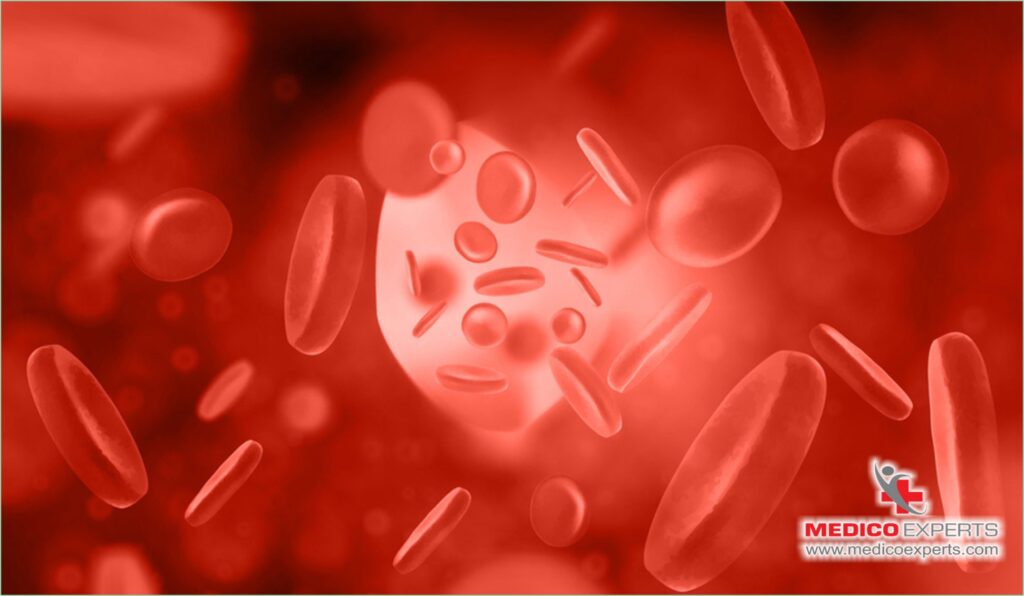
You need to know that squamous cell carcinoma can recur. Though there is no time limit for the recurrence of this cancer, most of the SCCs recur within two years of treatment. Moreover, SCCs that happen in the nose, ear, and lips have more possibilities of recurrence.
It can recur if microscopic remnants of the cancerous cells are left behind during the treatment. Also, some SCCs grow quickly and spread super fast. Additionally, it can recur if the patient has weak immunity.
Why MedicoExperts?

Cancer care is a complex process and needs a team of experts to successfully and efficiently handle the treatment process. MedicoExperts understands this very well and that is why it has brought together a team of specialists and healthcare providers so that you can completely concentrate on your healing journey. Here’s how we support and take care of you throughout your treatment.
- You do not need to worry about visas, consultations with doctors, post-treatment, and follow-ups. Our team will chalk out every step for you to give you a hassle-free treatment experience.
- MedicoExperts’s Tumor board has some of the top oncologists, pathologists, radiologists, and other specialists who will create a personalized treatment plan for you.
- We will also take care of all your post-treatment procedures. From cosmetic surgery to taking care of the wound and regular visits to your doctor, we will arrange everything for you.
Takeaway

You need to diagnose squamous cell carcinoma early to treat it completely. However, leaving it untreated will lead to health complications.
Treatment in India for this cancer means you will get top-notch healthcare facilities at a low cost. MedicoExpert can help you make your journey to India and the treatment process super smooth. We can help you connect with the best doctors and world-class hospitals in India. We will assist you in every step of your treatment journey.
Frequently Asked Questions (FAQs)
Q1. What is the treatment for stage 1 squamous cell carcinoma treatment?
A. The treatment for SCC stage 1 will depend on the location of the cancer and many other factors.
Q2. What is the treatment for conjunctival squamous cell carcinoma?
A. Surgery and chemotherapy are the two main treatments for Conjunctival squamous cell carcinoma.
Q3. What stage is moderately differentiated squamous cell carcinoma?
A. Moderately differentiated squamous cell carcinoma is a grade 2 cancer. It is called moderately differentiated because the tissues are somewhat abnormal.
Q4. How fast does squamous cell carcinoma spread?
A. SCC is a slow-growing cancer and it rarely spreads to other parts of the body. But compared to other skin cancers like basal cell carcinoma, it spreads faster.
Q5. How long can you wait to treat squamous cell carcinoma?
A. Early diagnosis is the key to treating this cancer successfully. So once you experience any of the signs and symptoms, you should consult a doctor immediately.
References
https://www.skincancer.org/blog/meds-increasing-risk-skin-cancer/#:~:text=Blood%20Pressure%20Medication,common%20type%20of%20skin%20cancer.
https://www.ncbi.nlm.nih.gov/books/NBK441939/
https://www.ncbi.nlm.nih.gov/pmc/articles/PMC10046308/#:~:text=Immunosuppression%20is%20strongly%20associated%20with,patients%20and%20the%20control%20group.
https://www.ncbi.nlm.nih.gov/books/NBK603721/
https://pubmed.ncbi.nlm.nih.gov/19775366/
https://www.ncbi.nlm.nih.gov/books/NBK441833/
https://www.ncbi.nlm.nih.gov/pmc/articles/PMC1570489/
https://www.ncbi.nlm.nih.gov/pmc/articles/PMC5265949/
Relevant Articles For You
Advanced Cancer Treatment In India
Cancer is the leading cause of death worldwide. It resulted in the deaths of nearly ten million people. Cancer deaths are expected to continue to rise around the world. The cancers that kill the most people each year are…..Read More
Recommendations To Understand Different Treatments
Advanced Skin Cancer Treatment In India
Skin Cancer is an abnormal growth of skin cells that usually grows in areas that are exposed to the sun, but in some cases, it can also occur in areas of your unexposed skin. You can reduce your risk of skin cancer by limiting exposure to…..Read More
Medically Reviewed By MedicoExperts Editorial & Clinical Review Board on 28 October 2024



